Health and Wellness
| Some career possibilities: | ||
|---|---|---|
| Activity Director | Corporate Wellness Instructor | Fitness Specialist |
| Health and Wellness Coordinator | Health Educator | Health Promotion Director |
| Nutrition Counselor | Personal Trainer | Public Health Specialist |
| Recreation Leader | Sex Educator | Youth Agency Recreation Director |
The field of health and wellness has recently emerged as a growing area of the employment sector. Increased attention to preventative health care, fitness, nutritional awareness, and healthy living habits has created a market for professionals interested in educating the public about these issues. The concept of wellness includes the physical, intellectual, social, occupational, emotional, and spiritual dimensions of optimal living.
A variety of skills are necessary if you have an interest in wellness programming and education. Marketing and promotional skills, computer skills, and speaking and writing abilities are all very important. Business, computer, psychology and communication courses are recommended as supplements to courses in the Health and Wellness major. Another alternative area of knowledge that can enhance marketability is familiarity with the healing arts, including massage therapy and chiropractic healing. These specialty areas will require additional training, education, or special certifications.
Broad areas of employment are:
Business: An increasing number of companies are offering some form of fitness or wellness programs for their employees. This may take the form of special workshops on stress management, smoking cessation, weight loss, or other related topics. Corporations may employ counselors or wellness professionals to help employees address these issues, or they may utilize consultants or independent contractors to provide these services. In addition, some corporations are developing fitness centers for employees, which requires hiring fitness specialists, instructors, and in some cases, health educators.
Health Care: A variety of health care settings provide career opportunities for health and wellness graduates. Hospitals, health clinics, community and college health centers, and state and local health departments may hire new graduates as health educators or programmers. These people will help to promote healthier lifestyles through counseling, teaching, and programming. They may also conduct research on topics such as evaluating the use of health services or analyzing the benefits of preventative health care.
Education: School based health educators function at all levels, from elementary schools to colleges and universities. They help students develop the knowledge and skills necessary to make positive decisions about diet, exercise, and sexuality, among other topics. To teach health education on the pre-k to secondary level, additional education and state teacher certification are usually required.
Community/Social Service Agencies: Community based health educators work for local, state, and federal government agencies, as well as private health organizations. Additional opportunities may exist in crisis or substance abuse centers. Health and wellness professionals in these settings may work with the mass media, plan and conduct workshops and clinics, and develop educational programs for specific populations. They may act as a health resource to both individuals and groups.
In order to prepare effectively for employment in these settings, Health and Wellness majors should participate in one or more internships related to their area of study. Volunteering is also a valuable resource to gain related skills and to learn about the type of work you would like to do and the organizational settings in which you would like to work.
Exposure to professional organizations can also help you to gain experience and knowledge concerning your field of interest. Gaining exposure within the wellness community and establishing a proven track record of work experience will enhance your employment possibilities.
A bachelor's degree in Health and Wellness can also be good preparation for a variety of graduate programs. For example, advanced degrees in health care administration, public health, or health/physical education are common. Additionally, some students may pursue advanced study in areas such as physical and occupational therapy, or exercise physiology. Admittance into graduate school requires excellent references, a B average or above, and GRE scores for many programs.










